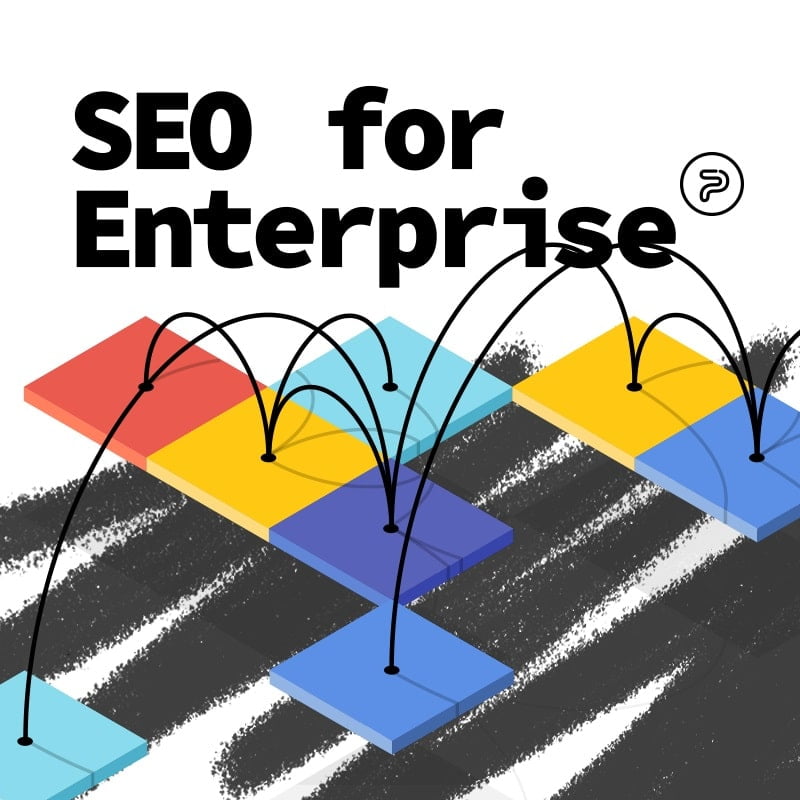Every company knows that investing in SEO (search engine optimization) is one of the best moves in the digital marketing realm. With the fast-paced advancements of the digital landscape, businesses have more opportunities than ever to get themselves in front of their loyal and potential costumers. Experts say that enterprise-level businesses invest around $20,000 in SEO on a monthly basis, which speaks for itself.
And honestly, ranking on the first page of Google and the results it gives, makes the investment a rather good deal for most enterprise CEOs, senior managers, and owners.
However, since the digital scene is rather dynamic, strategies that worked yesterday might hinder progress tomorrow. The same applies to businesses of different sizes. What works for a local company might do little to an enterprise-level firm.
When we’re talking about good strategies in SEO for enterprise companies, we have to think a bit differently and assess our resources differently as well.
Getting Started – What Is SEO For Enterprise Companies?
You might have heard of search engine optimization for local businesses, but enterprise companies? What does it entail? What are the differences? Should you know them?
The first thing you should know about enterprise SEO is that it should be only used for businesses that are big enough to qualify as “enterprise-level” otherwise, you just end up losing traffic.
In short, enterprise SEO is search engine optimization for (more often than not) international companies with huge websites in different languages.
In order to make an SEO strategy work on such a large scale, you must need a well-set plan, which you need to properly execute and be ready for constant tweaks and campaigns. You’ll also need to track search results and performance in all your locations, create content and market your goods accordingly.
All this can be a daunting task without a proper plan and strategy.
What’s the Difference Between Enterprise and Local SEO?
The things mentioned above still pretty much sound like regular SEO, right? Well, both local and enterprise optimization work towards the same end results, and that is improving online presence and getting more costumers.
However, an enterprise is a bit different.
- It’s more complex – More metrics to track for different website versions
- Sheer size – you have to manage more pages and content – the latter sometimes in different languages
- Team effort – If you’re a local business, you might only need one single person to do the job but when you’re enterprise-level, having a team of SEO specialists with specific duties is the most beneficial.
The Best Strategy for Successful SEO for Enterprise Companies
1. It’s a Team Effort
As mentioned before, having a good SEO team is crucial for proper strategy execution. More than two million searches are happening every minute, new algorithms come and go and keeping up with all these changes is nearly impossible. However, having a well-prepared team means they are able to tackle the majority of those constant changes and can help you generate more organic traffic.
For enterprise SEO, you need a team of individuals who take care of different optimization-related tasks and who are always up-to-date with the latest trends and upcoming changes.
Google makes changes constantly and your SEO team should be quite familiar with these changes, or at least, they should know about the effects they’ll have on your business and SEO efforts.
Investing in in-house specialists or external experts are great ways to keep your team updated.
2. Doing Different Tasks to Achieve the Same Goal
Every team member should have a specific role in the team. Some might be building links, others create content, design your website or take care of social media duties. It’s important for them to know their roles and to do their duties properly.
Even though team members have different tasks delegated to them, they should always know that they are working towards the same goal = improving rankings, lead numbers, organic traffic, and most importantly the number of costumers.
In order to achieve this, good communication and collaboration should be reinforced between team members and different departments. Losing precious information can make or break even the best SEO strategy, so having a clear line of communication is utterly important.
3. The importance of link building and internal linking
If you run a site that’s large and has been already indexed (which it should), chances are your site is of high-level authority because you’ve managed to build quality backlinks.
This is a good thing, however, link building shouldn’t stop here. It’s important to keep building backlinks to your pages as you launch them, no matter how many backlinks you already have.
Guest posting and Press releases are also great ways to build backlinks.
Having a large site sometimes means that most of your links go to your homepage, or that your old posts simply ”get lost”. When you practice internal linking, you can keep your old content fresh. Every time you create new posts, make sure to link to older posts on your site.
This keeps your older content relevant, makes a good reference point, makes your website more valuable to your potential costumers, and makes for easy access for search engine bots.
All this means better engagement rates from visitors and better page rankings.
Content – “The Alpha and the Omega”
1. Content is king
There’s no such thing as too much content. It will still be one of the most valuable things when it comes to improved rankings.
However, on enterprise-level, you’re creating content on a much larger scale.
This can be challenging. Creating and updating high-quality posts on (sometimes) hundreds of pages can be a daunting task. Also, new search engine updates will also mean even more tweaks to your existing content.
What’s the best practice?
Hiring a competent writer is your best bet, however, it can be costly. Also, your visitors and costumers are your focus and your posts should first and foremost appeal to them.
2. Long-form for the win
Long-form content is the preferred type of content for your pages because it’s more likely to rank high for the keywords you’ve targeted. They also tend to have more backlinks and better share rates on social channels.
The rule of thumb is, not to go overboard. You don’t need huge articles on your product page, however, such a page might be more valuable to customers than your blog.
Always have this guideline before you: If the service or product description page has all the answers the customer is looking for and can pursue them to make a purchase, your content is probably good quality.
3. Use all Forms of Content
While written content is the most popular form of content on most websites, it does not mean that all your visitors will read it.
This is why it’s important to use every available form of content which you can integrate into your digital ecosystem.
- Video – This form can make it easier for your customers to better understand the way your products or services work, not to mention, the user-experience is better.
- Infographics – They help simplify complex concepts by using images. Just like with video, customers can better understand the point you are trying to make.
- Podcast – Audio format content for people who’d rather listen to your content because they are also doing something else at the same time.
4. Re-optimization
By re-optimizing your existing pages, you can also improve organic traffic. It may seem tedious (especially when you have to rewrite a large amount of content too) but sometimes, it’s more beneficial to add more keywords to older content than to create new posts. If your company already ranks quite high, re-optimization can give it a boost. This is an effective strategy that can be taken care of with a few simple edits. It saves time yet yields solid results.
5. Keywords
With the right keywords, you can boost sales and leads. As an enterprise company with an authority website, competitive keywords are within arms reach and can lead to immediate growth.
Also, by analyzing your competitors’ keywords you can regain your competitive edge. If there’s a sudden improvement in their rankings, chances are, they are using different keywords. Go to their website, analyze their content by focusing on the keywords they rank the highest for.
Now, implement them in your strategy and enjoy the benefits.
6. Be prepared to follow through
Be patient regarding the results. SEO shows results slowly, but they are there. For an enterprise-level company, this may even mean 6 to 12 months. It’s for the long haul.
On the other hand, make sure to track your performance regularly. This way, you can see where you can improve your rankings, exploit opportunities, or fix errors.
Tracking the metrics that are important for your current campaigns is also vital. Track organic traffic when building brand awareness is your goal. When you’re after improving sales, keep on eye on your conversion rates.
7. Analyze the Results and Categorize them
Gather the numbers and see if they are helping you achieve your goal. If yes, keep doing what you’re doing. If not, keep tweaking things.
After you’re done going through the numbers, create a report to see a summary of your work. You can also use the report as an anchor or as a reference for future campaigns.
The Benefits of SEO for Enterprise Companies
There are quite a few hidden benefits from enterprise SEO apart from growing your business. Some are more obvious, others are less.
- One of them is that you’ll end up having well-organized websites.
- Enterprise SEO helps manage local searches and overlook performance on the same platform. Better results with less hassle.
- An optimized website builds more authority and improves performance.
The Takeaway
It’s safe to say, with a proper SEO strategy, enterprise-level companies can benefit a lot more than initially thought, A well-optimized site, easier local marketing, increase in organic traffic, leads, and sales are all achievable with these simple steps we’ve mapped out above.
Whether you create your in-house team or opt for hiring a professional SEO agency to do it for you, it’s safe to say, with the best strategy, you’re doing your company a huge favor.





